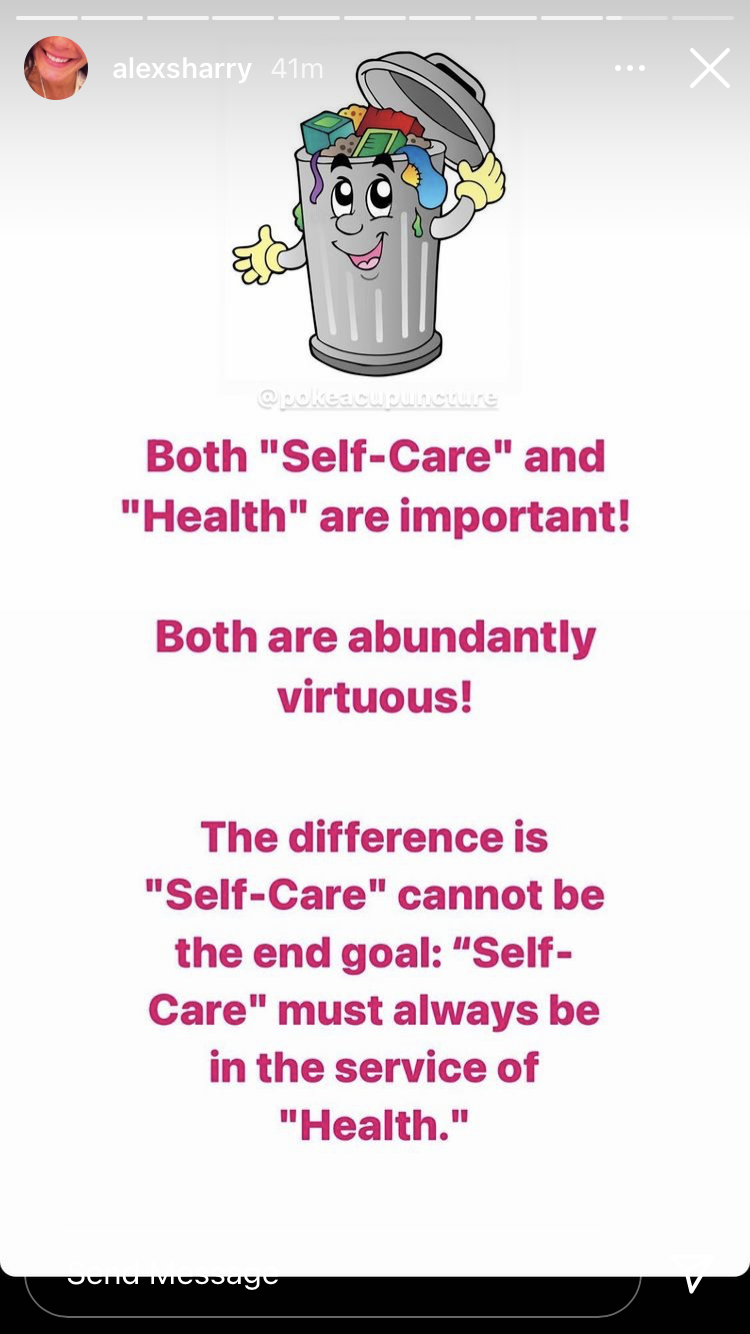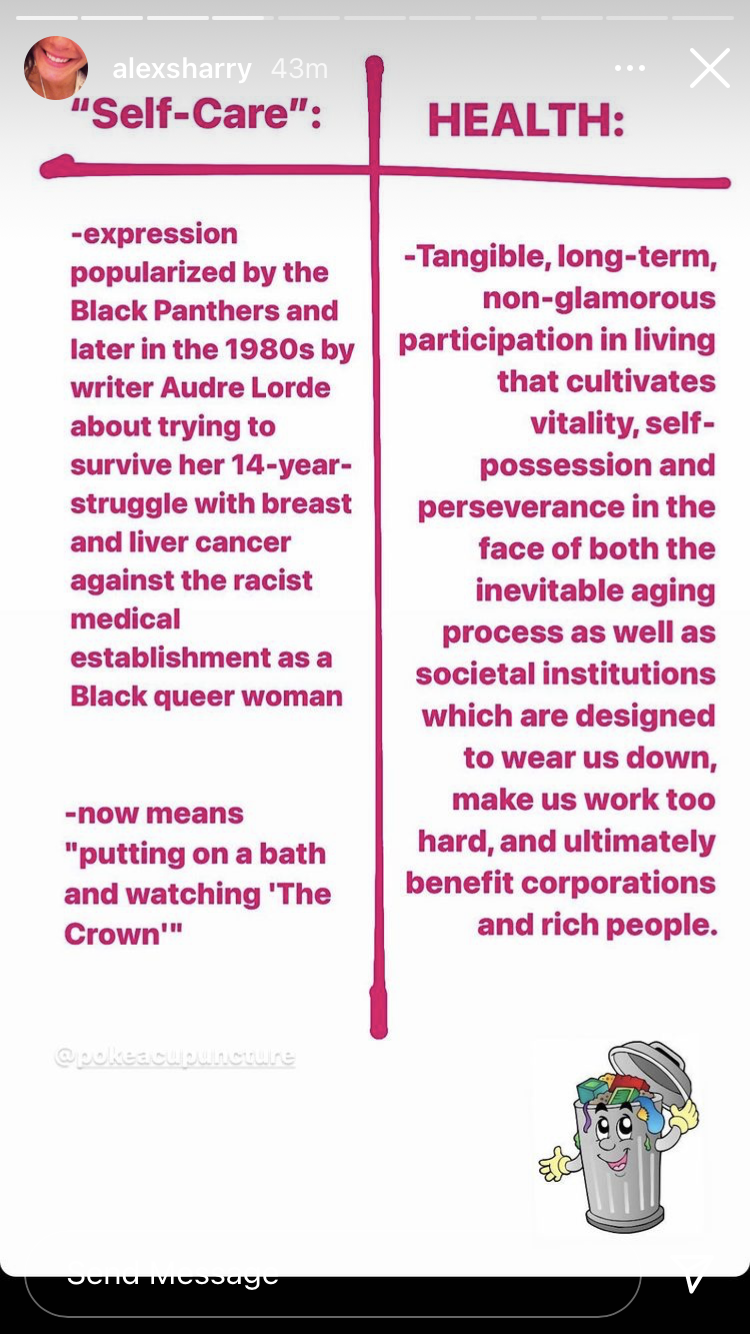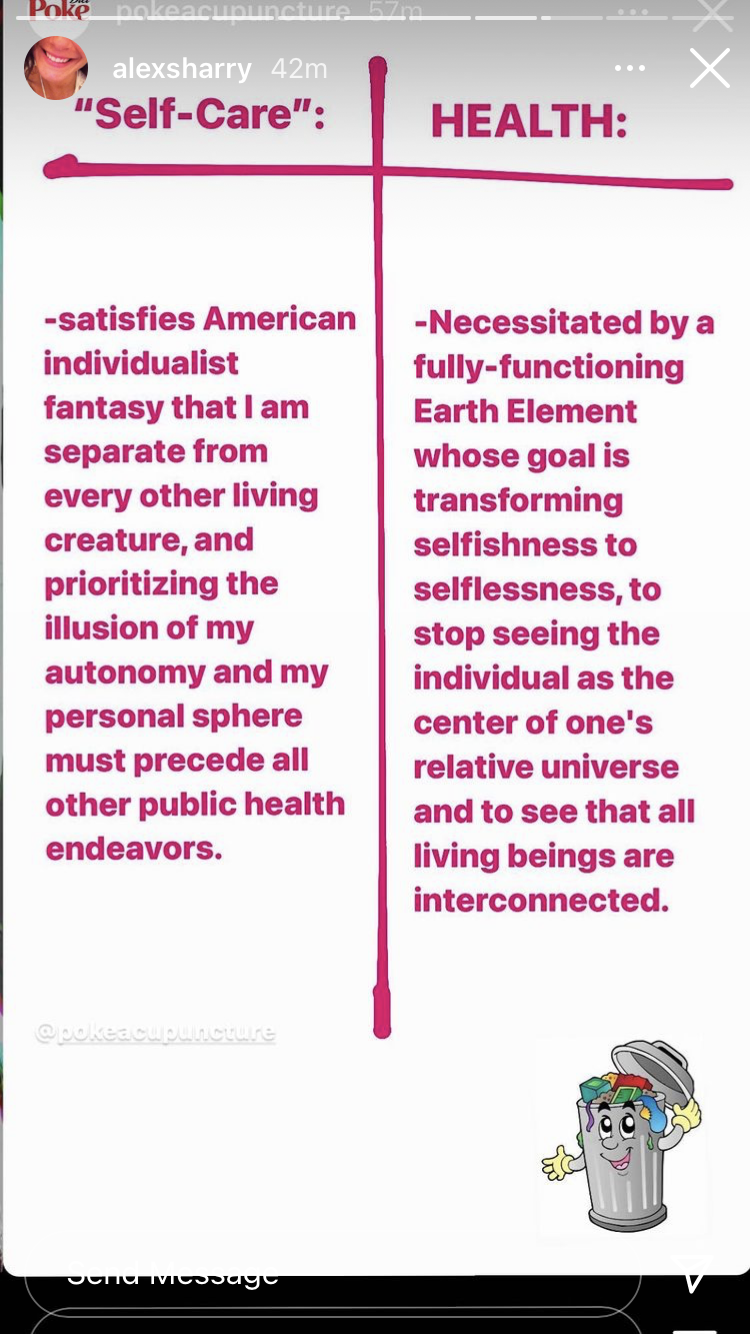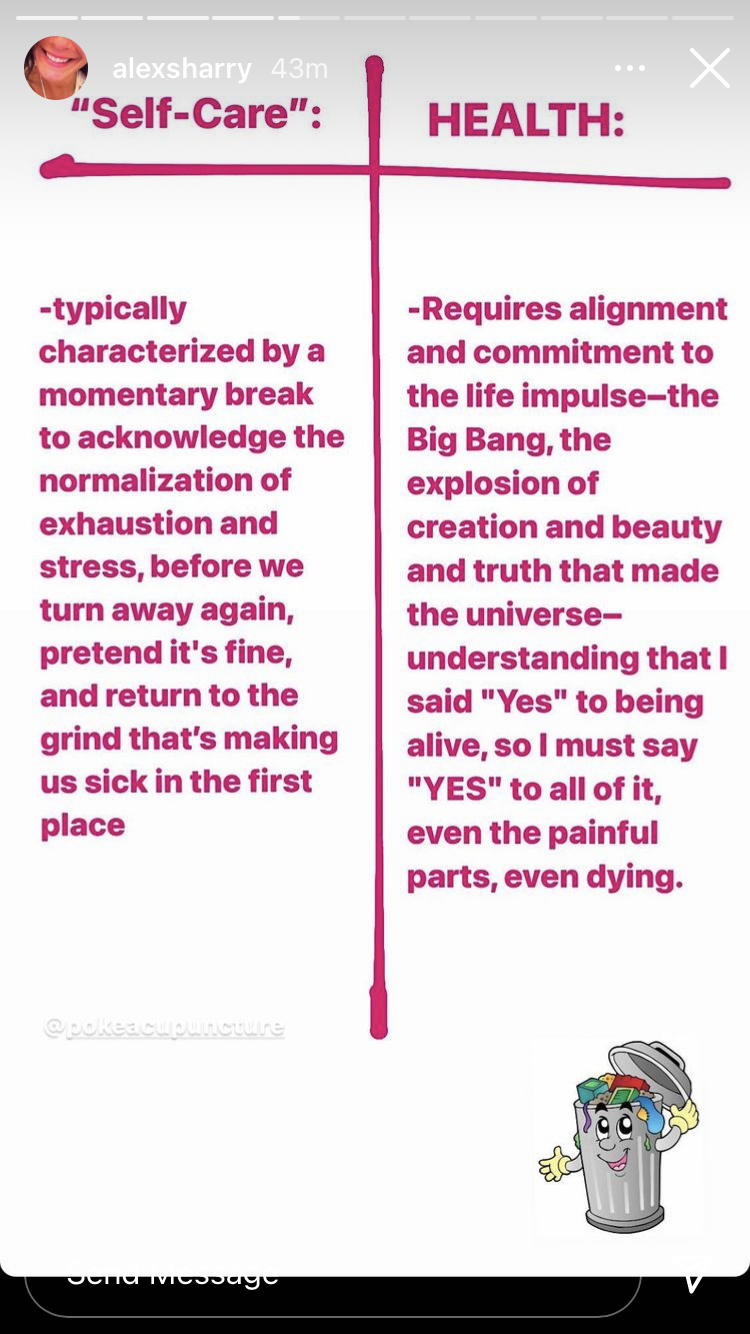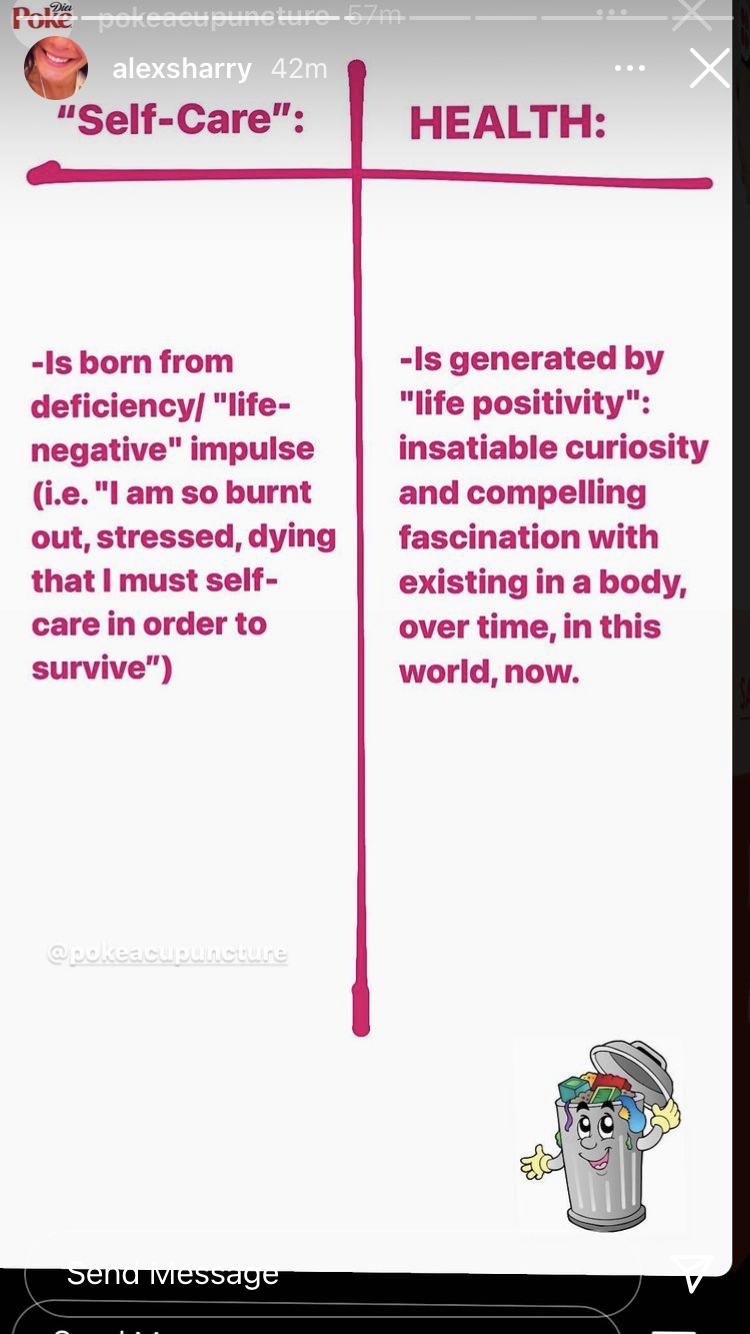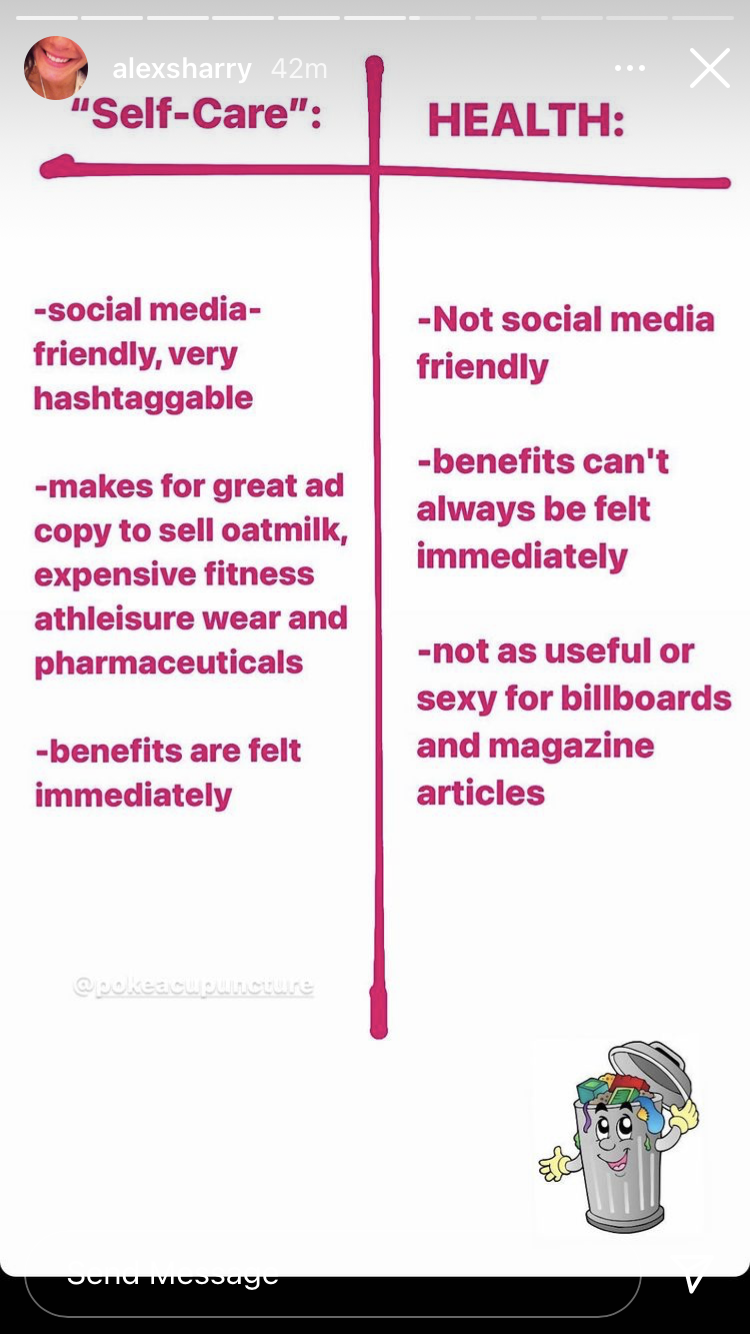On Maintenance
I was in the waiting room of a doctor’s office recently, and I was mulling over the difference between health and self-care. The latter has both a cult following and a bad rap lately… and I get it. Self-care is trendy, consumerist, and marketable. It’s also a cheap replacement for taking the alone time we may need to recharge, or a facade we hashtag on social media for likes and gratification.
But I do it too. Self-care time feels sacred and essential to my weekly routine. However, when I think back to pre-pandemic times, self-care was in my routine, just by a different name. And it also makes sense that our self-care has become more health-focused after almost two years in a pandemic that belabors our bodies. But I’m not convinced that self-care is about health; and I’m not convinced it’s not either.
…
One of my favorite metaphors—via Katonah Yoga, of course—is that the body is like a car. Just like we have to get gas when we’re running low, our bodies need sleep and rest to recharge. In the same way that the dashboard lights up when windshield washer fluid is low or a tire’s air pressure drops, our body gives us signals. We may feel tired, sick, anxious, fearful. So, in this way, self-care is less a treat for our body that we gift ourselves and is instead routine maintenance.
I’ve stopped considering a handful of my daily habits as self-care: drinking a large glass of water, going to bed early, stretching for at least 10 minutes. These habits aren’t self-care; they’re essential tasks I do every day to feel my best and maintain a healthy balance. Sure, I slip up and don’t always move my body or get enough water, but the point I’m making here is less about the mindset we bring to the task and more about the thing(s) we’re doing.
For me, taking my medicine isn’t self-care, it’s a requirement—a deal I made with myself years ago to commit to feeling better. Self-care, to me, is a set or series of optional tasks or rituals integrated into a routine that enhance your mood and embodiment; not keep it stable.
This is all tied into an intuitive shift I’ve felt to be more private and create more boundaries—even with/outside of posting to my blog. Self-care is popular because we’re all discussing it and talking about a product and a routine and on and on. But what makes self-care revolutionary is that it’s created and performed by you, made to uniquely fit your daily schedule and your needs. Self-care doesn’t have to be flashy or aesthetically pleasing. I’m not here to tell you what is or isn’t self-care, that’s for you to decide for yourself. My self-care isn’t going to work for anyone else the way it works for me. What I do hope you take away is the importance of distinguishing what is your baseline: what elements of your self-care are actually basic needs that keep you moving, breathing, inspired? And then, can you commit to doing them every day?
[This post was partially inspired by POKE Acupuncture’s stories via Alex Sharry.
